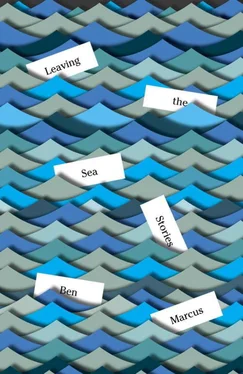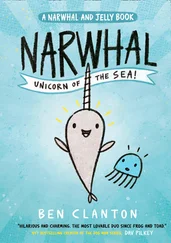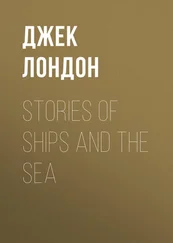He let his arm fall into the syringe basket and closed his eyes, waiting for the dreams that sometimes came on when the long needle, loaded with marrow, was raised over his body.
After his treatment, Julian’s father assured him from the lobby pay phone that money was not a problem. He’d wire it over on his lunch break, which meant Julian could get it later tonight. But how was he feeling, his father wanted to know, and how were his side effects, and was he able to sleep? Because you don’t get better if you don’t sleep well—tombstone—that’s just common sense, and of course the city must be tempting, the museums and the old opera house and the Latin food festival that opened last night, according to what his father had read online—what an exciting thing for Germany to be doing! his father said—but he shouldn’t go crazy, even though the delights of Düsseldorf must be so tempting. The delights! Is his hotel clean? He should take care of himself, and money seriously was not a problem.
This, Julian knew, was his father’s way of not saying that money was a problem, a very big problem, and that his father worried about it night and day, but never spoke of it. Never. Julian was simply allowed to lick money from his father’s body whenever he wanted to and his father had pledged to never cry out in pain.
They would find a way, his father said. He’d send more than Julian asked for, because worrying about money was the last thing Julian needed right now. He needed to heal. Was he healing?
Julian glanced at his needle-kissed arm. He pictured the German blood product sluicing through his body, trouncing free radicals, convincing his white blood cells not to eat through bone.
He guessed that he was healing. Quite.
“How’s Hayley?” his father asked. “She keeping you fed?”
Julian pictured Hayley prying his mouth open with her fist, pouring sauce down his throat.
“She’s fine,” Julian answered. No doubt this was true. Hayley was probably having a glass of wine, smoking, sitting at an outdoor café somewhere north of here. France, still? Berlin?
They’d spoken of Berlin in a vaguely flirty way, as if they might like each other more there.
“Is she with you now? Can you put her on?”
His father and Hayley and their whisper time. They were his armchair doctors, his medical curators, who earned their authority because they cared more about his health than he did. Julian was supposed to walk away after handing over the phone, to give them privacy, usually at Hayley’s place when he hadn’t come home for a while and his father was starting to worry. His caregivers needed to huddle and the patient was a nuisance.
“Oh, she went ahead to scout a good place for dinner. I’m starving.”
“That’s what I like to hear,” his father said.
How about that, having something you like to hear. For Julian it would be, what, exactly? Maybe something Hayley-related. Hayley saying something un-Hayley-like:
Hey, Jules, it’s me. I miss you and I’m on my way.
Would it be possible to hear that, or something like it, soon?
“Okay, Dad, well, thank you.”
His father breathed into the phone. He could tell, all the way from Germany, that at home in New Jersey his father was okay, maybe even smiling. He could feel it. This was something nice, too. It was very nice. It would do.
Shouldn’t he never, until the very second he died, stop thinking and thinking and thinking that he had a father who would do anything for him? What a crime to forget this. He was a criminal if he ever stopped thinking this for even a minute.
Julian thanked him again and tried very hard to sound sincere.
“I love you, honey,” his father said, and they hung up.
Julian took a shortcut to Old Town, up along Adersstrasse, dipping around the Graf-Adolf-Platz. Germany was deadly cold this time of year, the trees slick with ice, the grass so scarce it seemed the whole country had been poured in cement. The weathered stone, the weathered people, even the language was weathered. All around him flowed the gravest-sounding speech. It was genius, Julian thought, to create a language from strangled cries, deathbed wheezing. There was perhaps no truer way to communicate. If he spoke German he could sound solemn and serious. His inanities would escalate into parable. Everything out of his mouth would be a eulogy. German was the end-time language, the only tongue worth speaking on the last days. If the sun shrank and went cold, the world falling dark, everyone should squirm in the soil intoning German phrases. To honor the final minutes of the world.
Instead, Julian was stuck with whiny, nasal English, in which every word was a spoiled complaint, a bit of pouting, like children’s music sped up on the record player. In English, no matter what you said, you sounded like a coddled human mascot with a giant head asking to have his wiener petted. Because you were lonely. Because you were scared. And your wiener would feel so much better if someone petted it. How freakishly impolite, how shameful, to let these things be revealed by one’s language. English, a whiner’s tongue, a language for people who had to beg for sexual favors. At least overseas he didn’t speak much English. He didn’t speak much anything.
Julian ate no dinner. He found a wine bar and drank cautiously from a communal bottle of something red and sparkly, a kind of alcoholic soda. He sat in a sea of couches and every now and then some grinning celebrant poured a swallow into his glass and raised it vaguely at the others. A kind of listless cheers, offered to the room. Each time, Julian raised his own glass in response, nodding his head. Cheers indeed. When the bottle was empty, and he’d paid far more than he owed, he walked back down to the station and took his position on the ledge.
There was something fine about not looking out for Hayley tonight, a desire he’d pledged to destroy. He would take an evening off from feeling incomplete without her. Paid vacation. Nobody had to know that he wasn’t pining for her full-time. He’d done this shit on his own so far, and if Hayley had been here he would have tried to scrape her, day and night, for pity and understanding. She would have been empty by now, empty and seething, but he would have kept scraping, using a spoon, digging deep into her sweetest parts until they were long gone, and still he’d scrape at her, maybe until he could see through to the other side. He’d been doing fine without Hayley and he would do fine and he fucking was fine. He sat and he froze and he shivered, and it was perfectly terrific. Somehow he’d ended up with nothing to be ashamed of. He didn’t even know the train schedule tonight. A wonderful thing to be ignorant of. The trains could do what they liked. He had no good reason to be down at the station—what day was it anyway, and what time was it, and what was his name again?—and yet so far, since he’d arrived, this was his best night in Germany. He even felt sort of healthy, although it made him nervous to think so, and damned if he even knew what healthy meant anymore. He’d long ago lost track of how he was supposed to feel, and on days like this, nights like this, treatment or not, it was hard not to be worried, a little bit, that some of the reactionary, conservative doctors whom Hayley had railed against at home, the ones who’d diagnosed Julian in the merely normal range, might actually have been right. He was fine this whole time. He wasn’t legitimately sick, at least when it came to conventional measurements.
This was just what it felt like, perhaps, to be alive.
Or so these doctors seemed to be saying.
Did other people, he wondered, feel this same way—listless, strange, anxious, dull, scared, you could pretty much go shopping from a list of adjectives—and did everyone else just clench their jaws and endure it? Suit up for the day and fight it out on the streets? Were people barely okay and yet not running, as he did, to the doctor, again and again, and was no one discussing, out of some deep personal bravery, what they were so quietly and politely enduring?
Читать дальше












